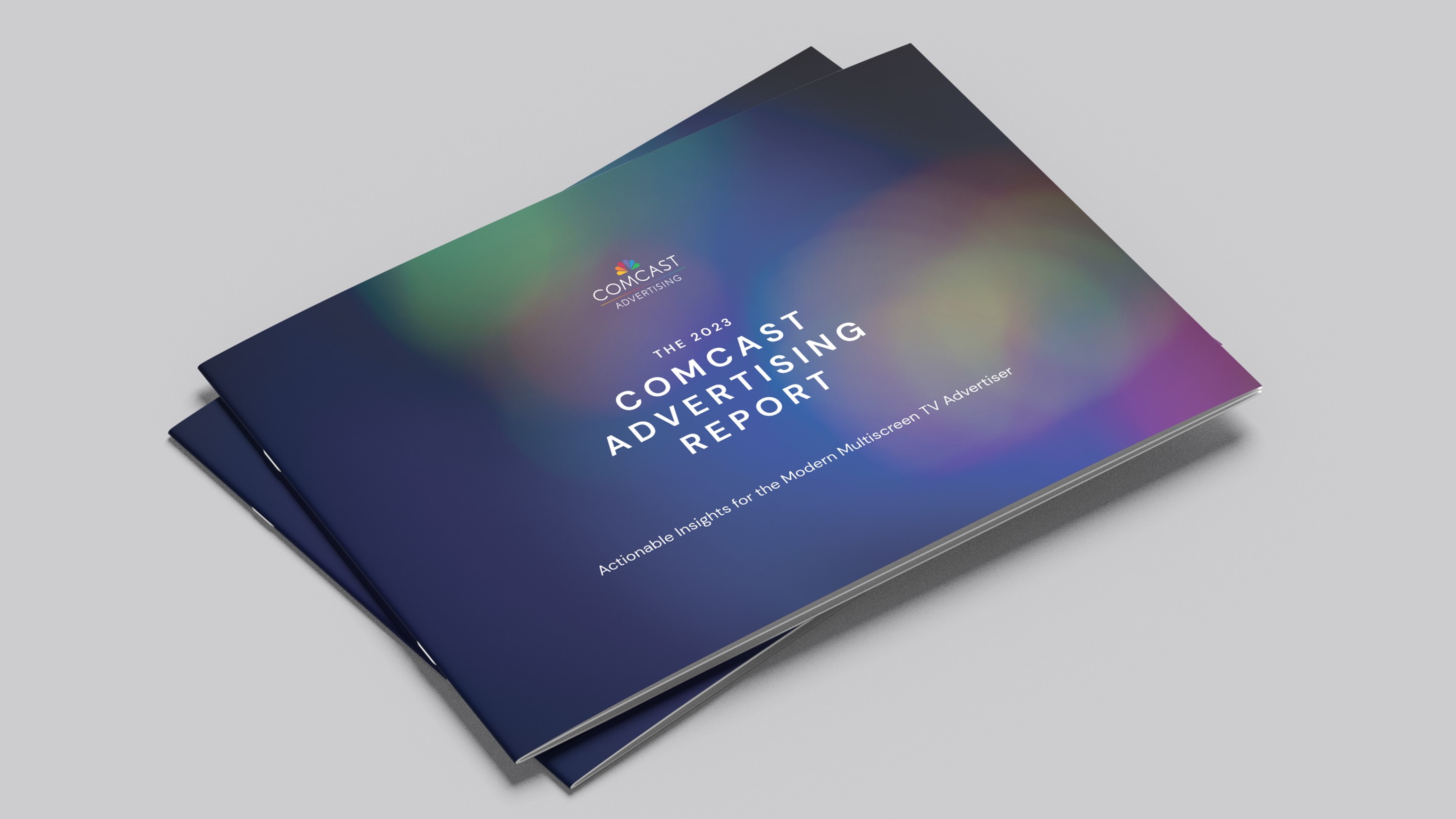
In the latest edition of the annual Comcast Advertising Report, the company made a series of predictions about where the industry is heading:
• Linear will look more like digital: Comcast Advertising said the delineation between linear and digital TV will eventually go away, but until that happens TV will become more targetable and executed more nimbly. “It’s critical that the industry continue building the technology infrastructure to easily enable sellers to unify their supply, and make linear behave more like digital, while ensuring that there are updated measurement currencies that can consistently and accurately measure against both,” the report said.
• More streaming platforms will offer bundled subscription plans: With consumers reevaluating how much they’re willing to pay for streaming subscriptions, consolidation or the bundling of streaming providers will continue. Publishers will offer two to three different apps through one subscription. “This is not only a win for the consumer since it lowers the cost of entry, but it also allows streaming providers to offer larger pools of content [ad] buyers can tap into to reach their target audiences,” Comcast said.
• Collaboration between companies will drive innovation: Comcast said the industry goal should be to improve how TV and premium video advertising are bought and sold. Companies will continue to work together over the next few years to standardize and address the ongoing issues and opportunities facing the ecosystem, including measurement currencies, generative AI, supply chain optimization and improving viewer experience.
• What’s old will be new again with contextual targeting: With cookies crumbling as a way to identify viewers, contextual targeting will become more sophisticated. “As privacy concerns remain top of mind, the industry will prioritize contextual targeting methods and solutions as a primary tool to ensure advertisers can reach consumers with relevant messages,” the report said.
• Sustainability will have a seat at the table: “Sustainability has become an increasingly important discussion point across the industry in the last few years and it is expected to come to the forefront even more,” Comcast said. “Both buyers and sellers are taking steps now to ensure a better future for the industry and for the planet.”
The report also looked at today’s viewing patterns and ad buying and selling practices based on data from its Effectv ad sales unit and FreeWheel, Comcast’s ad technology company.
Comcast noted that 82% of viewers prefer to watch streamed content on a TV screen, where people pay more attention to ads, compared to a smaller screen, and that viewers consider what’s on FAST and AVOD channels “premium” video.
Consumers are 58% more likely to recall an ad on professionally produced programming than on user-generated content, Comcast said.
Viewers spend nearly six hours a day watching linear TV and commercial pods in streaming are getting longer, with 34% lasting more than 3 minutes.
Ad buyers have embraced multiscreen approaches to buying and are increasingly making programmatic deals as more viewing happens on CTV and FAST channels, the report said. Sports is a key to buyers looking for reach, which can be maximized by combining addressable and data-driven linear.
More sellers are using audience targeting to make ads more relevant. They are monetizing live sports with programmatic strategies and 78% of programmatic deals are being sold on a programmatic basis.

The report includes results of study of media buyers and advertisers that found that 94% of advertisers expect to maintain spending in premium streaming channels in the next 12 months.
Cost and frequency controls are the biggest challenges in maximizing TV and video advertising reach. Nearly 40% of those surveyed said they planned to increase spending on streaming video, with 27% devoting extra dollars to FAST channels. But the advertiser said that TV remains a core strategy, with 80% planning to maintain or increase spending on traditional TV in the coming year.
“The industry continues to transform at break-neck speed toward a more data-driven, automated approach to buying and selling advertising,” said James Rooke, president of Comcast Advertising. “As this transformation accelerates, the value of trusted, transparent and engaging viewing environments has never been more important. The Comcast Advertising Report provides a unique and layered perspective into these environments and how buyers, sellers and viewers are navigating today’s complex media landscape.”







